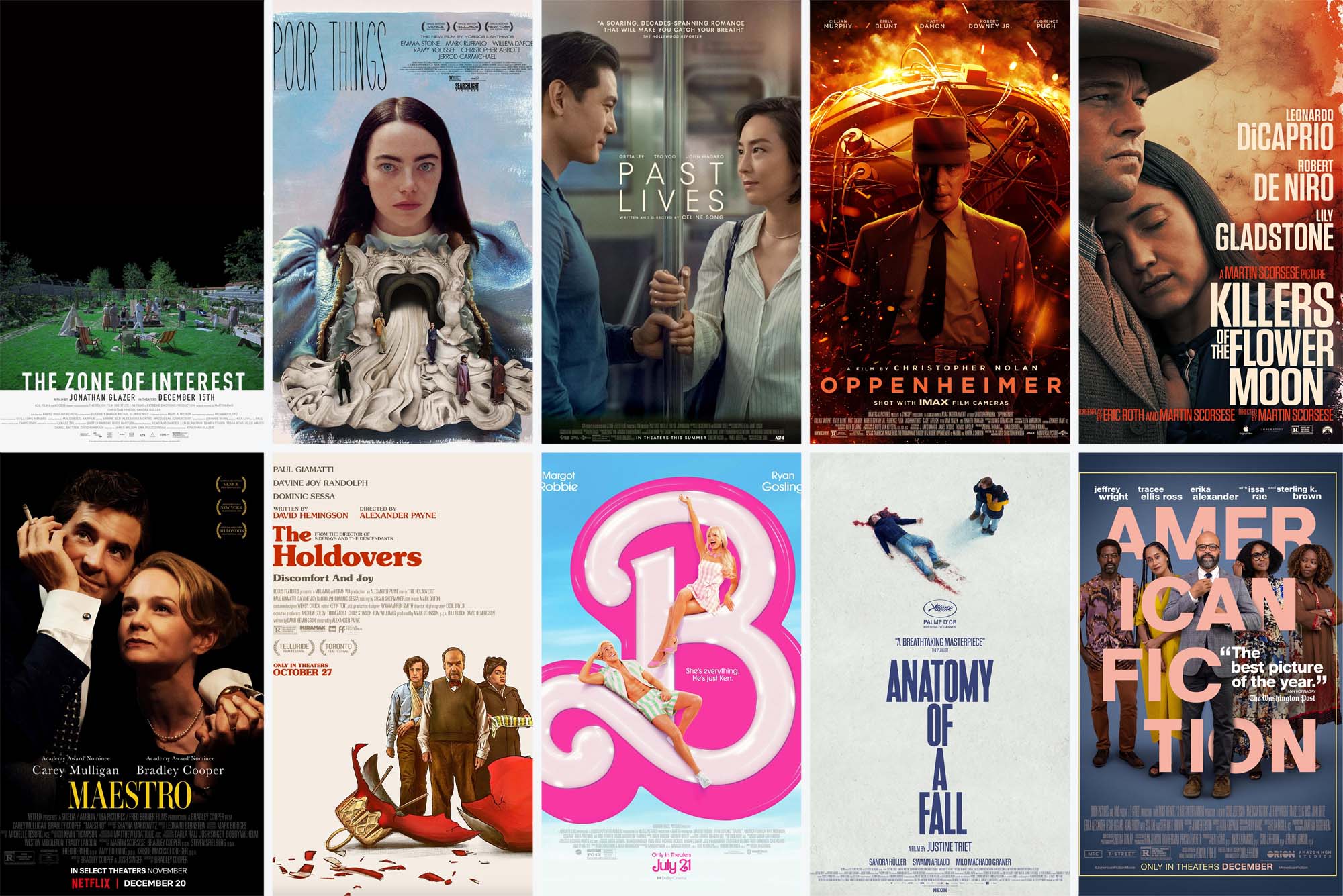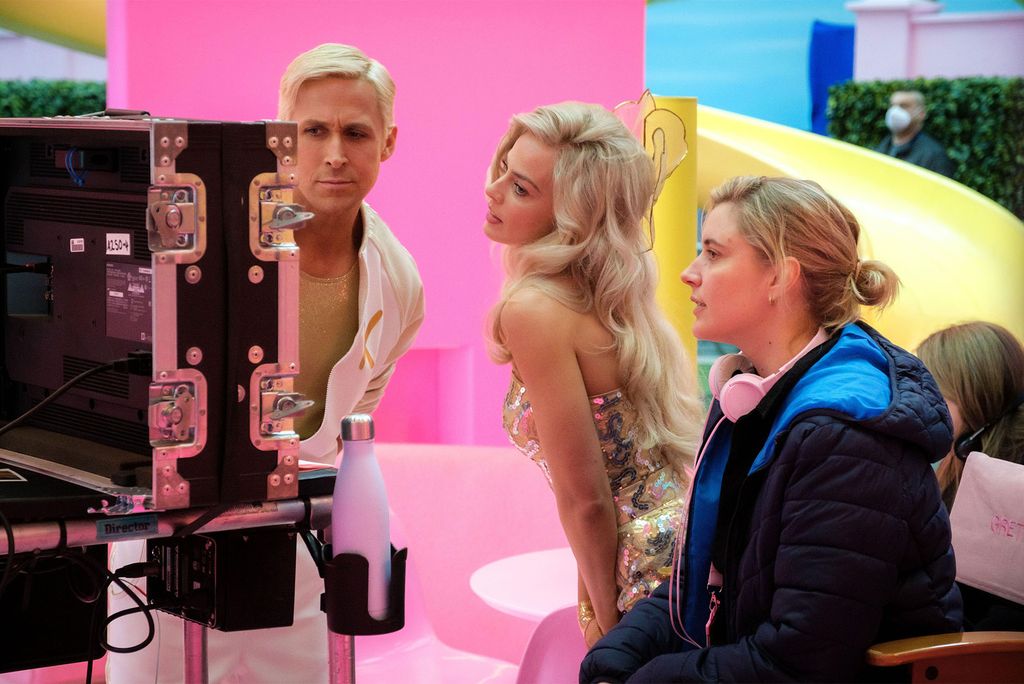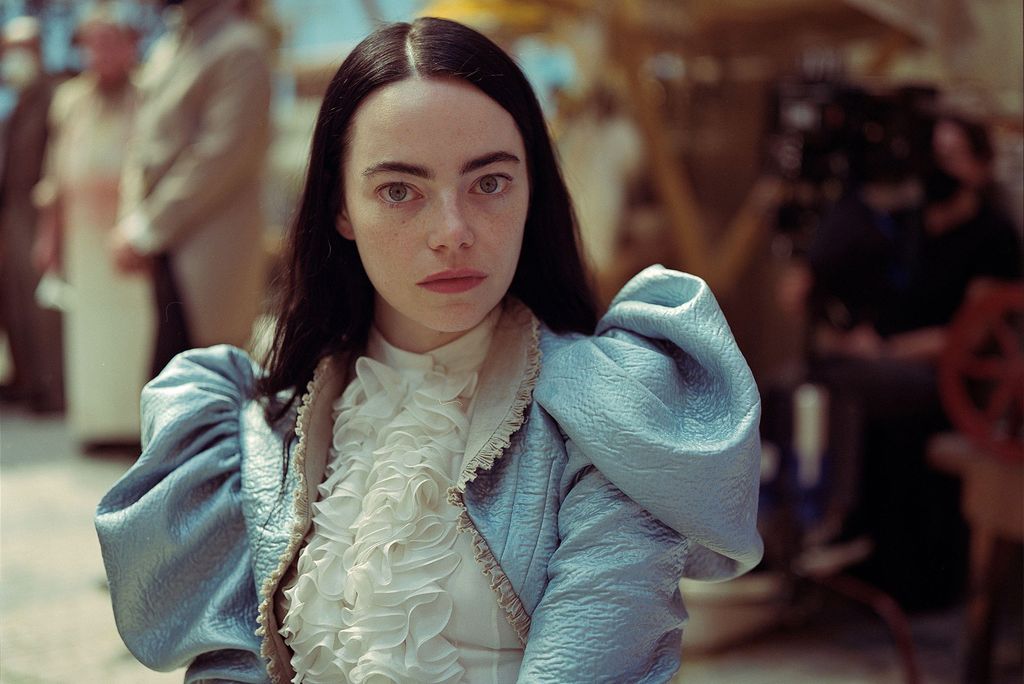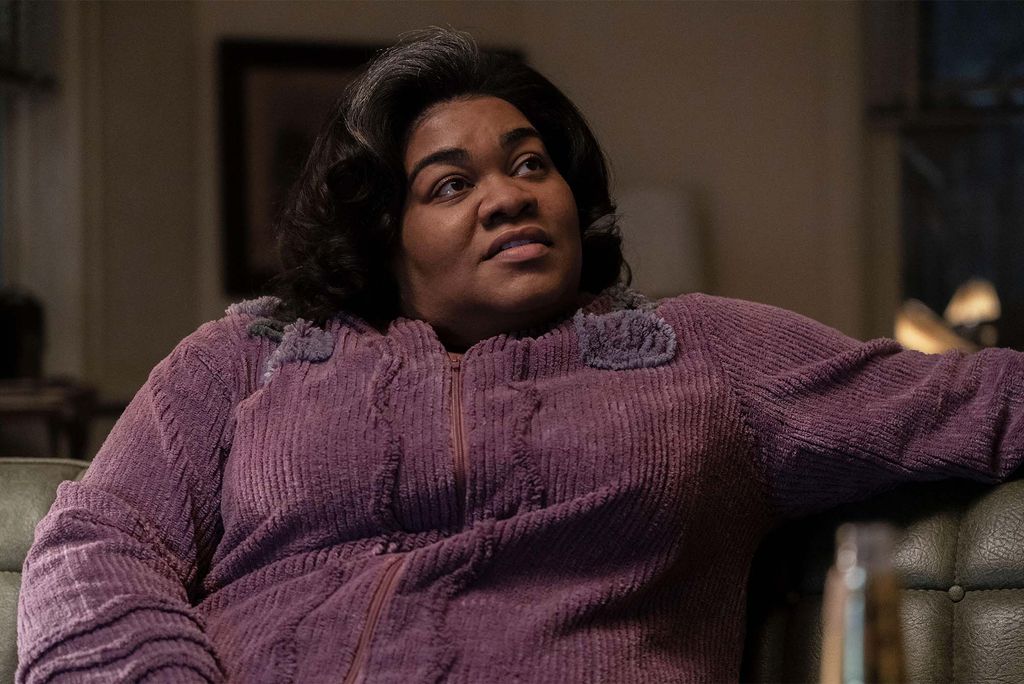#Kenough, Barbenheimer, and Emma Stone: BU Film Experts Predict the Oscars

The films nominated for this year’s Academy Award for Best Picture. Oppenheimer is expected to win. Photos via IMDb
#Kenough, Barbenheimer, and Emma Stone: BU Film Experts Predict the Oscars
BU’s Harvey Young and Jonathan Foltz on who should win the 2024 Academy Awards, who will win, and who got robbed
This article was originally published in BU Today on March 5, 2024. By John O’Rourke
In the aftermath of both a writers strike and an actors strike that crippled the film industry for much of 2023, Hollywood is finally ready to celebrate with its biggest night of the year: the 96th Academy Awards (being broadcast live Sunday, March 10, starting at 7 pm).
In addition to a roster of critically acclaimed films that have produced an unusually competitive Oscars race, the global box office took in $33.9 billion last year, up 31 percent from the year before. Much of that can be ascribed to the cultural phenomenon known as “Barbenheimer,” a reference to two summer blockbusters, Greta Gerwig’s Barbie and Christopher Nolan’s Oppenheimer. Barbie has earned more than $1.5 billion to date, and Oppenheimer is approaching $1 billion in ticket sales.
BU Today talked with Harvey Young, dean of the College of Fine Arts, and Jonathan Foltz, an assistant professor of English in the College of Arts & Sciences and program director of its Cinema & Media Studies program, about what struck them about this year’s nominated films, who they think should win, and who they think will win. They also discussed who should have been nominated, but wasn’t.

Q&A
WITH HARVEY YOUNG AND JONATHAN FOLTZ
BU Today: Let’s start by talking about your favorite film of 2023 and why it earned top marks in your book.
Harvey Young: I enjoyed Spider-Man: Across the Spider-Verse—until the last five minutes. Nimona and Barbie also were terrific. They didn’t take themselves too seriously. Their aim was for their audiences to have fun while sneaking in profound moments.
Jonathan Foltz: My favorite film of 2023 seems to have flown beneath the radar of all the major awards: Kelly Reichardt’s Showing Up. It’s about an unsuccessful sculptor, played by Michelle Williams, nervously preparing an exhibition of her work as she tends to an injured pigeon, navigates her professional jealousies, and faces down the expectations of her family. It has all the lucidity and precision of a delicately rendered short story. And in a year of weighty cinematic epics and films full of historical purpose, I have come to appreciate Showing Up’s light touch even more.
What struck you the most about this year’s nominations?
Young: Except for Barbie and Oppenheimer, most of the nominated films aren’t recognizable. If you picked a random person and asked them what The Zone of Interest and Anatomy of a Fall have in common, I’d bet that more folks would guess Jack Reacher novel than best picture Oscar nominee.
Foltz: This was a year filled with prestige historical dramas: Oppenheimer, Napoleon, Killers of the Flower Moon, Maestro, Rustin,even The Zone of Interest. These are films wrestling with the past, burdened with the task of giving that past a contemporary meaning.
Given the phenomenon of “Barbenheimer,” should we expect to see those two films dominate Sunday night?
Young: Barbenheimer was genius marketing. Those films have nothing in common beyond their premiere date. However, it worked. A lot of people saw both films. Oppenheimer will win the “big” categories—the ones that’ll dominate the next day’s headlines—and Barbie will collect an armful of equally important, but less newsworthy Oscars.
Foltz: No doubt—they will dominate not only the awards, but also the skits and banter between the awards. However, I would—somewhat cynically—expect to see Oppenheimer emerge with more Oscars when all is said and done.
Much has been made of the fact that Greta Gerwig failed to earn a best directing nod for Barbie and that the film’s star, Margot Robbie, wasn’t nominated for best actress. Were they snubbed?

Young: Yup, yes, definitely. If readers could see me, I’m nodding, as well. Greta Gerwig should win the award. Her vision—creativity and cinematic storytelling chops—made Barbie successful. Robbie, if nominated, wouldn’t have been competitive, but the most featured actor in a best picture nominee merits a nomination.
Foltz: It is hard to describe a film that’s been nominated for six Oscars, including best picture, as having been “snubbed.” I’d say that the absence of individual awards for Greta Gerwig and Margot Robbie is more of a surprise than anything—one that’s particularly notable given the film’s strong box office performance and the dearth of recognition for women directors. Gerwig’s absence in the director’s category has received the most attention, but it’s worth mentioning that Celine Song, Kelly Reichardt, Sofia Coppola, Emma Seligman, and Nicole Holofcener also got passed over.
Who else should have been recognized?
Young: Greta Lee should have been nominated for best actress for Past Lives. She’s a star on the rise. American Symphony (the documentary feature about Jon Batiste) deserves recognition. We’re living in a heyday for documentaries thanks to streaming services. The Academy should consider expanding the number of documentary nominees.
Foltz: There was no shortage of great films this year not recognized with some of the top nominations. Among them: Showing Up, May December, Passages, Bottoms, Fallen Leaves, Priscilla, You Hurt My Feelings. Go see them!
Let’s talk about this year’s top Oscar categories. Tell me who you think will win and who you think should win.
Best picture:

Young: Oppenheimer will win. But ithad drawbacks. The makeup artistry to age characters was good, not great. I found it distracting. More concerning, the atrocity and heartache that was the bombing of Nagasaki and Hiroshima are invisible and unseen. The movie makes the bombings palatable. If I were an Academy member, I would have voted for Barbie.
Foltz: Who will win? Let us accept the inevitable: Oppenheimer will win best picture. It is a stylish and important (and also self-important) historical epic, as well as a cinematic spectacle and box office success. I think Killers of the Flower Moon has a chance to upset it, but I would see Oppenheimer as a clear favorite.
Who should win? Of the nominees, the best overall film is Anatomy of a Fall. However, if you ask me who should win best picture, my personal answer would be Poor Things, Yorgos Lanthimos’ grotesque, ungainly, and chaotic carnival of ideas. The film is glaringly imperfect—it sags in the middle, makes little dramatic sense, and occasionally suffers from its jaundiced, juvenile sense of humor. But it is also gloriously—sometimes sickeningly—alive. It is a real “experiment.” We don’t, alas, live in a society that rewards films of restless utopian hunger, like Poor Things—films that cultivate the viewer’s dissatisfaction with the world and its paltry ideas of freedom. But shouldn’t we?
Best director:
Young: The Oscar will go to Christopher Nolan. Gerwig is my “should win” and should’ve-been-nominated pick.
Foltz: Who will win? Christopher Nolan will win for Oppenheimer. Who should win? Justine Triet should absolutely win for Anatomy of a Fall. She’s crafted a film that is brilliant, cunning, and philosophically probing. It’s an emotionally mature, politically daring film whose mystery unfolds around as you watch it, revealing question after question. If Ingmar Bergman directed a slow-burning murder mystery and courtroom drama, it might look something like this. To be honest, even his version might not have been as subtle and as tastefully realized.
Best actor:
Young: Cillian Murphy will win. I would love for Paul Giamatti (The Holdovers) to have an Oscar. He’s my should-win pick.
Foltz: Who will win? Cillian Murphy will win for Oppenheimer. Who should win? Jeffrey Wright for his layered performance of Thelonious “Monk” Ellison in American Fiction. His take on the character deftly balances comedy, alienation, and the quiet sensitivity of a man struggling to connect with his family.
Best actress:
Young: Emma Stone should and will win. She pushes and takes risks as an actress. When she wins, she will match Meryl Streep’s extraordinary Oscar pace with two wins in five nominations by age 35.
Foltz: Who will win? Lily Gladstone for Killers of the Flower Moon. Who should win? Lily Gladstone! As Mollie Burkhart, Gladstone’s searing performance and indelible screen presence is the moral center of a film that is often difficult to watch. That her performance steals from heavyweights like Robert De Niro and Leonardo DiCaprio, and does so easily, says enough.


Emma Stone as Bella Baxter in Searchlight Pictures’ Poor Things, directed by Yorgos Lanthimos. Stone is nominated for best actress. Photo via Alamy Stock Photo/Searchlight Pictures/Entertainment Pictures
Da’Vine Joy Randolph is considered a lock for best supporting actress for her performance as a grieving mother in Alexander Payne’s drama, The Holdovers. Photo via Alamy Stock Photo/BFA/Seacia Pavao/Focus Features
Best supporting actor:
Young: It will and should be Robert Downey, Jr., (Oppenheimer). It’s a triple redemption story—overcoming the addictions that derailed his career after Chaplin, a grand return to more serious fare after a dozen years playing Iron Man, as well as the post-MCU stumble that was Dolittle. A spoiler in the making is Ryan Gosling (Barbie), who gifted a soul to the most overlooked of all toys.
Foltz: Who will win? Robert Downey, Jr., will win for screaming through the final hour of Oppenheimer. Who should win? Robert De Niro from Killers of the Flower Moon. He gives an unctuous and stomach-churning performance of sickened charisma as William King Hale, a truly disturbing American character at once sociopathic and all-too familiar.
Best supporting actress:
Young: This one is a toss-up. My gut feeling is that the Oscar will go to Da’Vine Joy Randolph for The Holdovers (so that’s my pick). She has the momentum following her BAFTA win and her incredible acceptance speech. However, Emily Blunt might benefit from the tailwinds of Oppenheimer mania.
Foltz: Who will win? America Ferrera will win for Barbie. Who should win? Da’Vine Joy Randolph from The Holdovers. She brings radiance, depth, and seriousness to the character of a grieving mother, and nearly steals the film from Paul Giamatti.
Best original song seems to be a toss-up between the two nominees from Barbie: “What Was I Made For,” by Billie Eilish and Finneas O’Connell, and “I’m Just Ken,” by Mark Ronson and Andrew Wyatt. Thoughts?
Young: “I’m Just Ken” should and will win—perhaps following in the footsteps of the Oscar-winning classic, “Man or Muppet.” [Laughing] That said, Billie Eilish and Finneas O’Connell wrote the song that I’d rather listen to over and over again.
Foltz: These two songs encapsulate the strange duality that is Barbie: one is a soulful, terribly sincere meditation on being a woman; and the other is bright and gaudy entertainment. I love Billie Eilish, but nothing can stop the dumb, gleeful juggernaut that is “I’m Just Ken.”
Given that she was passed over in the best director category, is it likely Greta Gerwig will win for best adapted screenplay for Barbie?
Young: It’s a toss-up between Nolan and Gerwig/Noah Baumbach, but Gerwig should and will win. Think of it this way: if someone handed you a biography of a womanizing, quasi-communist, world-changing scientist, and also a plastic doll, then asked you to pick one and use it as inspiration to write an Oscar-worthy movie, which do you think would be the harder task?
Foltz: This would be the conventional wisdom. Yet this year the category is remarkably competitive, and strong arguments can also be made for Cord Jefferson’s work on American Fiction, Jonathan Glazer’s work on The Zone of Interest, as well as Tony McNamara’s work on Poor Things. But knowing the academy and its willingness to swoon over the self-serious, they will just give the Oscar to Oppenheimer here, as well.